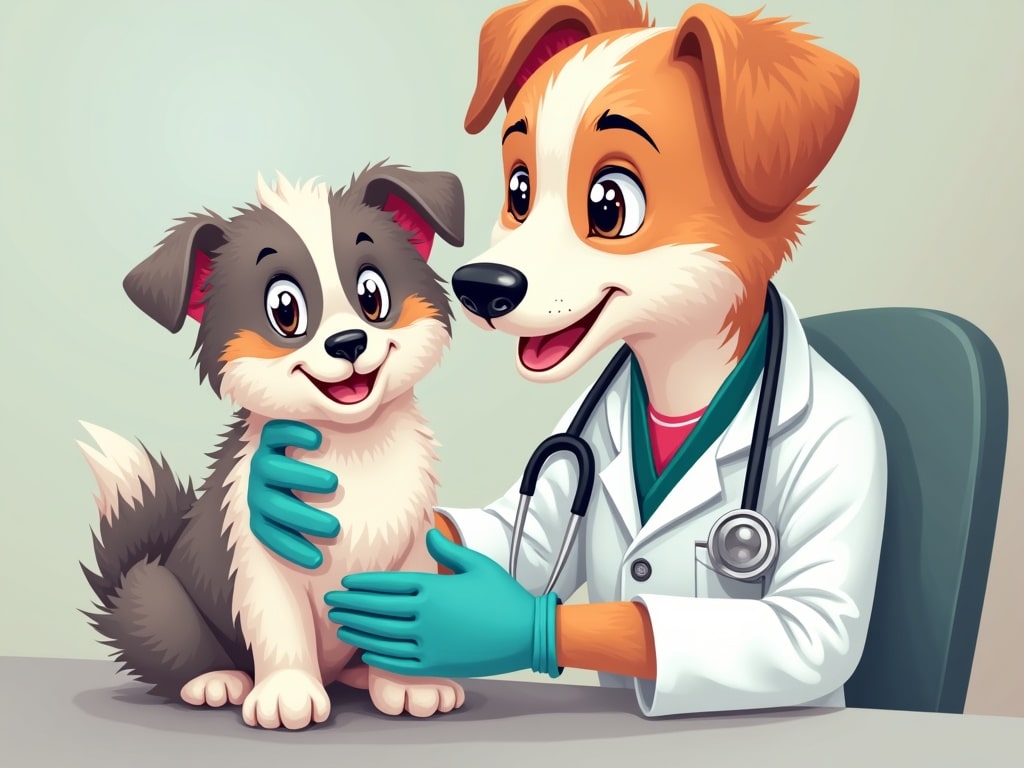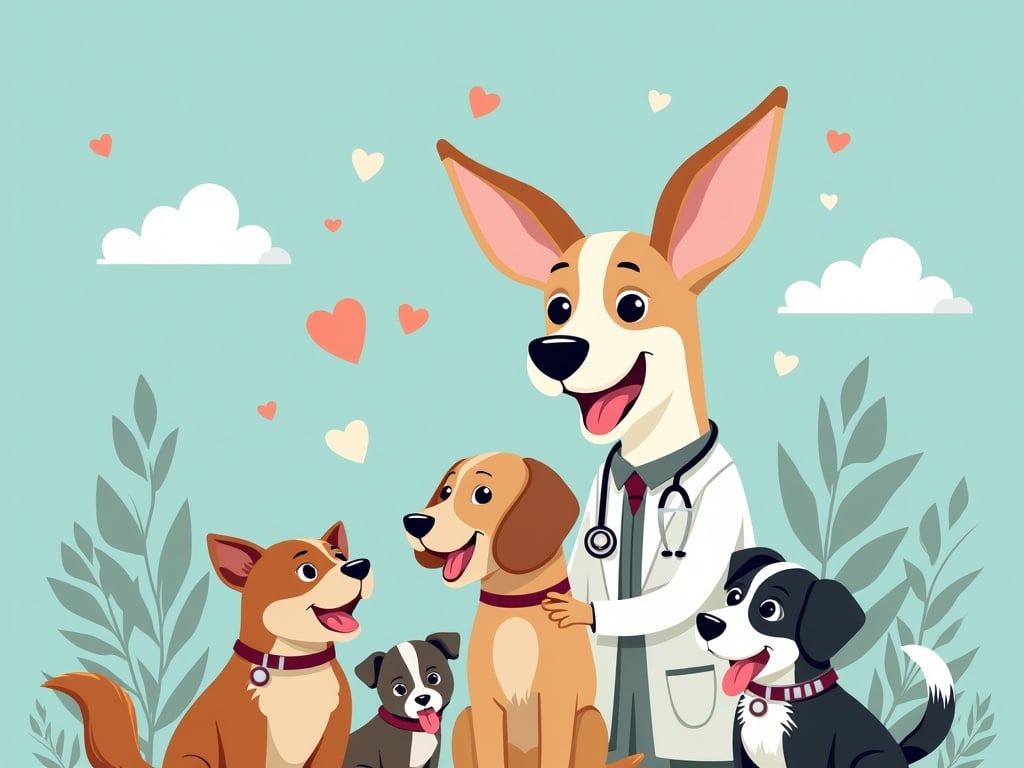Okay, I understand. Here's the HTML output for your long-form article on how to find a good veterinarian, crafted to be engaging, SEO-optimized, and in line with your specifications.
How to Find a Good Veterinarian: Your Comprehensive Guide
Imagine this: your furry friend is acting strangely – lethargic, refusing food, or just not themselves. Your heart sinks. Finding the right veterinarian isn't just about locating someone who can treat your pet; it's about finding a partner in their lifelong health and well-being. But with so many options, how do you navigate the world of animal care and find a vet who's the perfect fit for you and your beloved companion? This comprehensive guide will walk you through the essential steps, from initial research to building a lasting relationship with a trusted veterinary professional.
Why Finding the Right Veterinarian Matters
Choosing a vet is a crucial decision that impacts your pet's health, happiness, and longevity. A good veterinarian does more than just treat illnesses; they provide preventative care, offer nutritional advice, and become a trusted resource for all things pet-related. Think of them as your pet's primary care physician, surgeon, dentist, and nutritionist all rolled into one!
- Preventative Care: Regular checkups, vaccinations, and parasite prevention are essential for keeping your pet healthy and preventing future health problems.
- Early Diagnosis: A skilled vet can detect subtle signs of illness early on, leading to more effective treatment and better outcomes.
- Emergency Care: Knowing you have a vet you can rely on during an emergency provides peace of mind.
- Long-Term Health Management: Veterinary professionals help manage chronic conditions like diabetes, arthritis and allergies, ensuring the furry member of your family lives a long and happy life.
- Personalized Advice: Every pet is different. A good vet will take the time to understand your pet's individual needs and provide tailored advice on nutrition, exercise, and behavior.
Step 1: Start Your Research
The first step is to gather a list of potential veterinarians in your area. Here's how to get started:
Ask for Recommendations
Word-of-mouth referrals are invaluable. Talk to friends, family, neighbors, and coworkers who have pets. Ask them about their experiences with different vets, what they liked, and what they didn't like. Online reviews can be helpful, but personal recommendations often provide a more nuanced perspective.
Check Online Reviews and Ratings
Websites like Yelp, Google Reviews, and Vets.com can provide insights into other pet owners' experiences with local veterinarians. Pay attention to both the positive and negative reviews. Look for patterns of behavior, such as consistently positive comments about a vet's bedside manner or recurring complaints about long wait times. Keep in mind that online reviews can be subjective, so take them with a grain of salt.
Use Online Directories
The American Animal Hospital Association (AAHA) and the American Veterinary Medical Association (AVMA) websites have veterinarian directories that can help you find licensed and accredited professionals in your area. AAHA accreditation indicates that a hospital meets high standards of quality and care.
Step 2: Consider Your Pet's Specific Needs
Not all veterinary clinics are created equal. Some specialize in specific types of animals (e.g., cats, dogs, birds, reptiles), while others offer more comprehensive services. Consider your pet's specific needs when making your decision.
- Type of Animal: Do you have a dog, cat, bird, reptile, or other type of pet? Make sure the veterinarian has experience treating your specific type of animal.
- Age and Health Condition: A young, healthy pet may only need routine checkups and vaccinations. An older pet or a pet with a chronic health condition may require more specialized care.
- Specific Services: Do you need a vet who offers specific services, such as dental care, surgery, or acupuncture?
- Emergency Care: Is it important to you that your vet offers 24/7 emergency care, or are you comfortable going to an emergency animal hospital if needed?
Step 3: Evaluate the Clinic's Location and Hours
Convenience is a factor to consider, especially in emergencies. Choose a veterinarian whose clinic is located within a reasonable distance from your home or work.
- Location: Is the clinic easy to get to from your home or work?
- Hours: Are the clinic's hours convenient for your schedule? Do they offer evening or weekend appointments?
- Emergency Care: Do they offer 24/7 emergency care, or do they refer to an emergency animal hospital?
Step 4: Call and Ask Questions
Once you've narrowed down your list of potential veterinarians, call each clinic and ask some questions. This will give you a better sense of their practice philosophy, services, and fees.
Essential Questions to Ask
- Do you accept new patients?
- What are your consultation fees?
- What services do you offer?
- Do you specialize in any particular type of animal or condition?
- What is your approach to preventative care?
- What are your payment options?
- Do you offer pet insurance?
- What is your emergency care protocol?
Pay attention to how the staff answers your questions. Are they friendly, helpful, and knowledgeable? Do they seem genuinely interested in your pet's well-being?
Step 5: Schedule a Visit or Consultation
The best way to get a feel for a veterinary clinic is to visit it in person. Schedule a meet and greet appointment or a consultation to meet the veterinarian and staff, tour the facilities, and ask any remaining questions.
What to Look for During Your Visit
- Cleanliness and Organization: Is the clinic clean, well-maintained, and organized?
- Atmosphere: Is the atmosphere calm, welcoming, and comfortable?
- Staff Interaction: How do the staff members interact with the animals? Do they seem gentle and compassionate?
- Equipment: Does the clinic have modern, well-maintained equipment?
- Overall Impression: Do you feel comfortable and confident at this clinic?

Step 6: Trust Your Gut
Ultimately, the best veterinarian for you is someone you feel comfortable and confident with. Trust your gut instinct. Do you feel like you can trust this person with your pet's health and well-being? Do they seem genuinely caring and compassionate? If something doesn't feel right, don't hesitate to look elsewhere.
Building a Strong Relationship with Your Veterinarian
Finding a good veterinarian is just the first step. Building a strong, lasting relationship with your vet is essential for ensuring your pet receives the best possible care. Here's how to cultivate that relationship:
- Be Open and Honest: Provide your veterinarian with complete and accurate information about your pet's health history, diet, lifestyle, and behavior.
- Ask Questions: Don't be afraid to ask questions if you don't understand something. Your vet should be happy to explain things in detail.
- Follow Recommendations: Follow your veterinarian's recommendations for preventative care, treatment, and follow-up appointments.
- Communicate Regularly: Keep your veterinarian updated on any changes in your pet's health or behavior.
- Be Respectful: Treat your veterinarian and their staff with respect. They are working hard to provide the best possible care for your pet.
Understanding Veterinary Costs and Payment Options
Veterinary care can be expensive, especially for unexpected illnesses or injuries. It's important to understand the costs involved and explore your payment options.
Common Veterinary Expenses
- Routine Checkups and Vaccinations
- Dental Cleanings
- Diagnostic Tests (e.g., blood work, X-rays)
- Medications
- Surgery
- Emergency Care
- Specialty Care (e.g., cardiology, oncology)
Payment Options
- Cash or Credit Card: Most veterinary clinics accept cash and major credit cards.
- Pet Insurance: Pet insurance can help cover the costs of unexpected veterinary expenses.
- CareCredit: CareCredit is a healthcare credit card that can be used to pay for veterinary care.
- Payment Plans: Some veterinary clinics offer payment plans to help you spread out the cost of treatment.
Don't hesitate to discuss your financial concerns with your veterinarian. They may be able to suggest more affordable treatment options or help you find resources to assist with veterinary costs. Consider discussing all potential outcomes prior to making a final decision.
The Importance of Regular Checkups
Regular checkups are essential for maintaining your pet's health and preventing future problems. Just like humans, pets benefit from routine medical care.
What to Expect During a Checkup
- Physical Examination: The veterinarian will perform a thorough physical examination, checking your pet's vital signs, weight, and overall condition.
- Vaccinations: Your pet will receive any necessary vaccinations to protect them from common diseases.
- Parasite Prevention: The veterinarian will recommend preventative measures for fleas, ticks, heartworms, and other parasites.
- Dental Examination: The veterinarian will examine your pet's teeth and gums for signs of dental disease.
- Nutritional Counseling: The veterinarian will provide advice on proper nutrition for your pet's age, breed, and activity level.
- Behavioral Consultation: Address any behavioral concerns that your pet may be experiencing.
The frequency of checkups will depend on your pet's age and health condition. Puppies and kittens typically need more frequent checkups than adult pets. Senior pets may also benefit from more frequent checkups to monitor for age-related health problems.
When to Seek Emergency Veterinary Care
Knowing when to seek emergency veterinary care is crucial. Some situations require immediate attention to prevent serious complications or even death.
Signs of a Veterinary Emergency
- Difficulty Breathing
- Severe Bleeding
- Trauma (e.g., hit by a car)
- Seizures
- Loss of Consciousness
- Poisoning
- Severe Vomiting or Diarrhea
- Bloated Abdomen
- Inability to Urinate or Defecate
- Sudden Weakness or Collapse
If your pet is experiencing any of these signs, seek veterinary care immediately. Don't wait to see if they improve on their own. Time is of the essence in an emergency.
Conclusion
Finding a good veterinarian is an investment in your pet's health and happiness. By following these steps, you can find a veterinary professional who is the perfect fit for you and your furry, feathered, or scaled companion. Remember, open communication, trust, and regular checkups are key to building a strong, lasting relationship with your vet. With the right veterinary care, your pet can live a long, healthy, and happy life by your side—and that's an outcome worth pursuing with intention and care.

